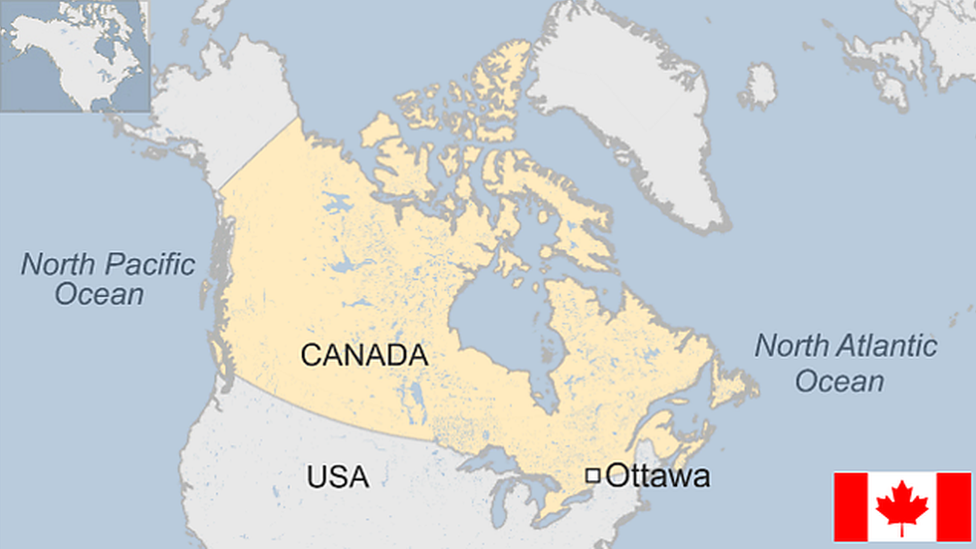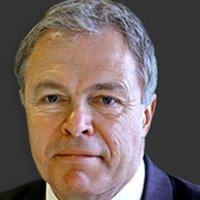Canada: The different voice
- Published
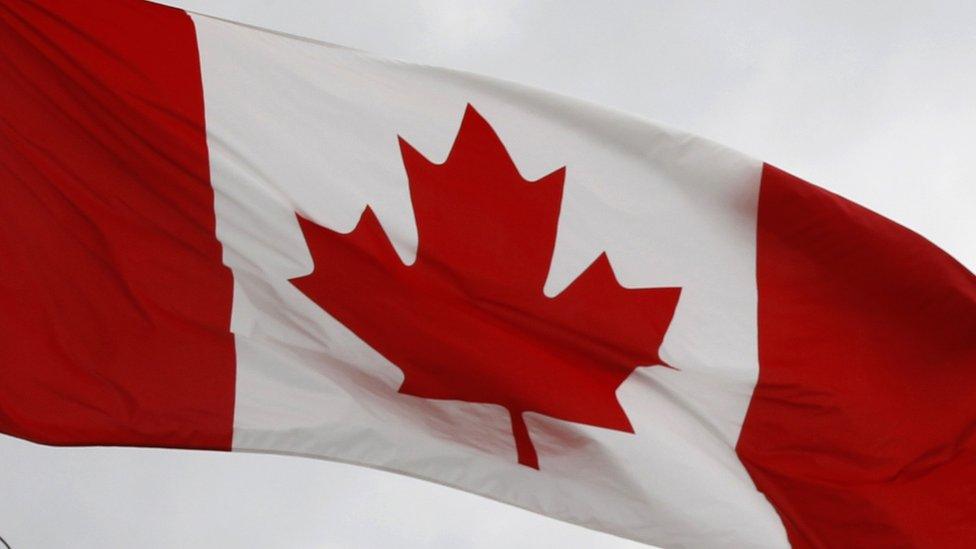
The anti-establishment caravan rolls on. Donald Trump surges in the polls - he's ahead in the key battleground states of Ohio and Florida. In Germany, the anti-immigration party the AFD hurts Angela Merkel once again - this time in Berlin.
In France, the far right party of Marine Le Pen tops some polls, while support for the socialist President Francois Hollande scarcely reaches double figures, while the anti-immigration Sweden Democrats, despite its dubious roots, is enjoying record popularity.
In the West, liberal democracy is facing a grave challenge. At a time of anger with the elites, the centre-left is struggling to define its purpose or find a narrative.
It lacks confidence with its voice stilled - except in Canada.
As the United States stands on the verge of embracing Donald Trump's anti-establishment cry, its neighbour to the north has emerged as a champion of liberalism.
Justin Trudeau, the Canadian prime minister, benefits from his youthfulness. He has inherited the easy charm of his father and understands the power of small inclusive gestures.
For the moment, he seems unafraid to chart his own path. There are still doubts about his inexperience and not all Canadians are persuaded by the dazzle, but his popularity is holding up.
In a few months time North America could have two leaders, Trump and Trudeau, who couldn't be more different.
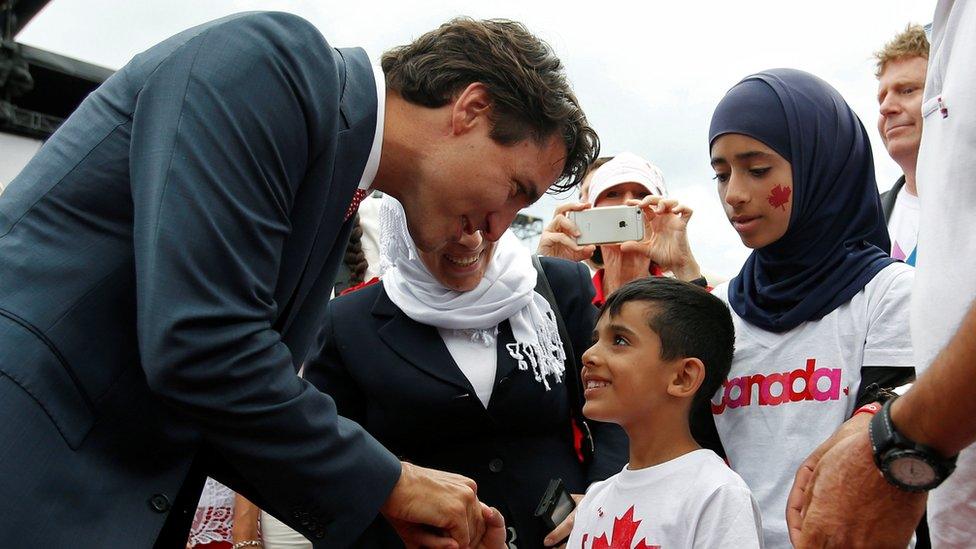
Canada's Prime Minister Justin Trudeau welcomed Syrian refugees to his country
Mr Trump questions whether Muslims should come to America. Mr Trudeau has prayed with them. He went to the airport to welcome some of the 25,000 Syrian refugees who Canada has accepted and in place of the fear of the other, he made a point of seeing them as new Canadians.
"This is something we are able to do in this country, because we define a Canadian not by a skin colour or a language or a religion or a background but by a shared set of values, aspirations, hopes and dreams that not just Canadians but people and the world share," he said at the time.
When Mr Trudeau was asked about half his Cabinet being women, he answered simply "because it's 2015". He called himself a feminist, which would be unexpected words if they came from the mouth of Mr Trump.
While Europe frets over multiculturalism, Canada seems at ease.
When Mr Trudeau was questioned about the burkini ban in certain French coastal towns, he said: "In Canada, can we speak of acceptance, openness, friendship and understanding?"
Europe still argues over austerity - the policy divides the EU. Canada has opted to borrow more to support growth while credit is cheap.
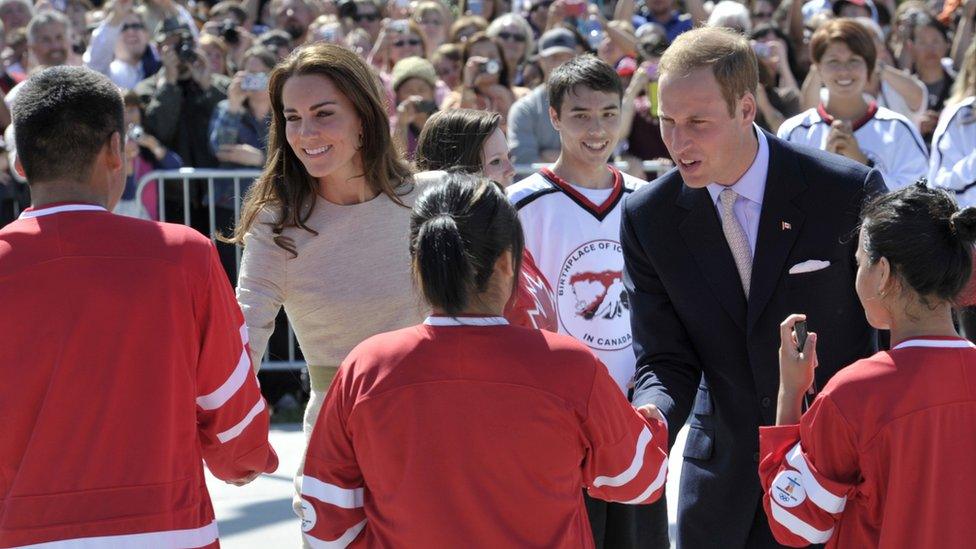
Media coverage of the country often focuses on royal visits
Controversially, Mr Trudeau ended Canada's combat role in the coalition air war against the so-called Islamic State although it retains a training role.
Mr Trump trashes trade deals and promises to unpick them. The Canadian government is actively pushing the EU to finally ratify a free trade deal.
Canada, secure in its own magnitude, has chosen a different path. It doesn't seek a leadership role but is, nonetheless, comfortable with itself.
I write as a former correspondent for Canadian Broadcasting, CBC, who lived in Toronto. I was struck then, when I travelled, just how many doors the Canadian calling card opened, perhaps more than the BBC. Precisely because it is not the United States, it has always had a soft power.
The country usually attracts scant attention, with some networks choosing to view Canada mainly through the prism of royal visits.
In the past it has often charted its own distinctive course.
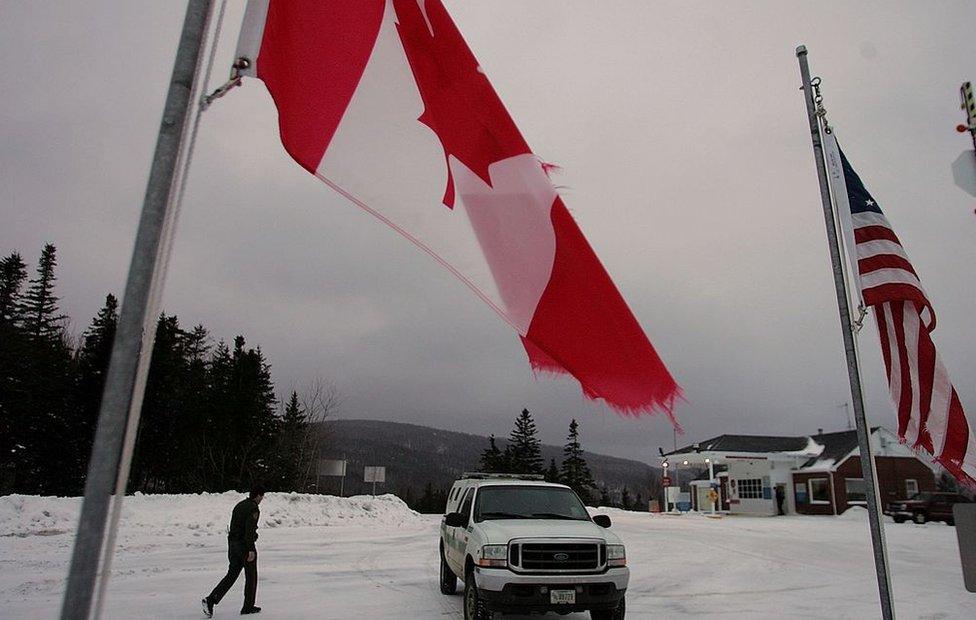
Canada's liberal agenda differs from that of its southern neighbour
I remember my neighbour in Toronto was an American, dodging the draft, fleeing the call-up to fight in Vietnam. Canada was happy to offer refuge to those resisting the war.
But Canada today is embracing bold and sometimes controversial experiments. It has an unashamedly liberal agenda. In parts of Toronto, they hold women and girls only swimming sessions mainly to benefit the Muslim community.
In Vancouver, doctors are permitted to prescribe heroin for severe addicts. Next year the sale of marijuana will be legalised and the government is contemplating making ID cards gender neutral.
Recently, riding on the Toronto subway between King and Summerhill, I was struck that, apart from in London, I had never seen such a diverse set of passengers. The percentage of Canada's population that is foreign-born is the highest in the world. Vancouver is the largest Asian city outside Asia.
In a few months' time, North America could be divided not just by the longest land border in the world but a sharply different vision of how to respond to the modern world.
Even patriotism is defined differently. An academic recently pointed out that in Canada it is regarded as patriotic to support immigration and multiculturalism. That can't be said of too many places.
Canada rarely seeks a starring role but it may become the standard-bearer for the liberal cause.
- Published20 May 2016
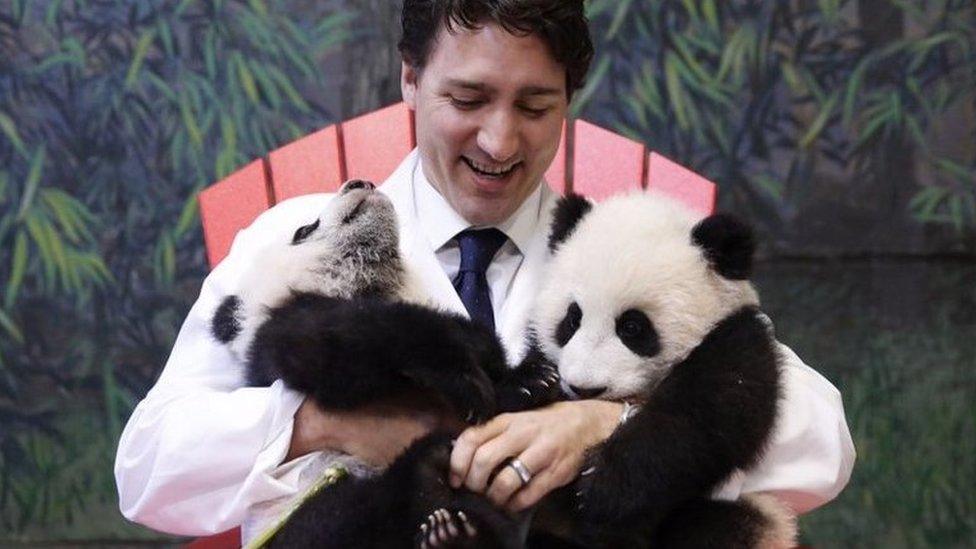
- Published23 March 2016
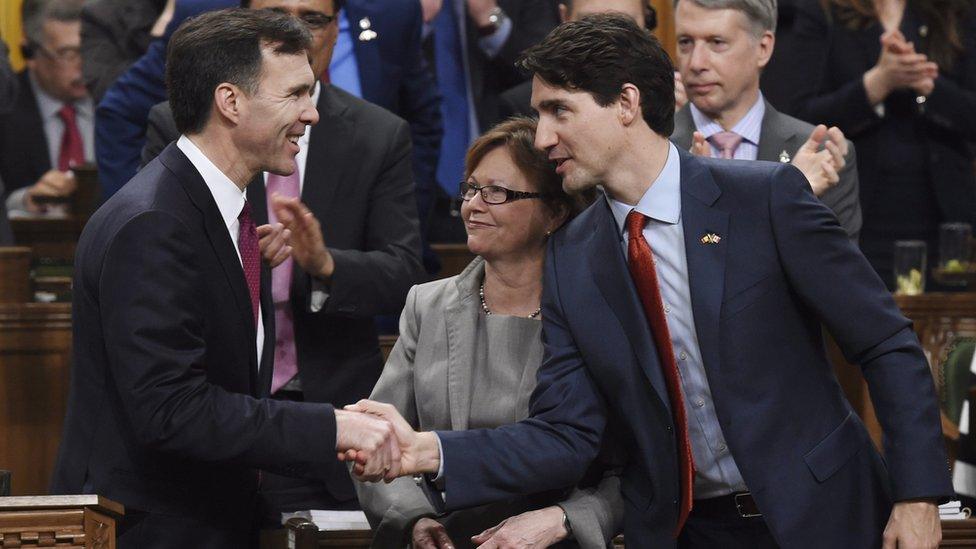
- Published8 January
